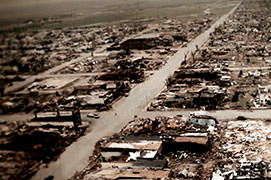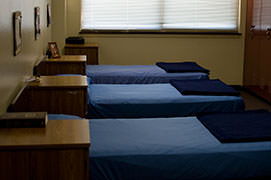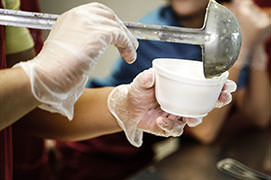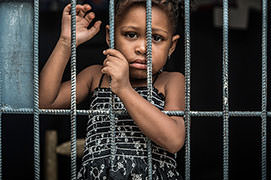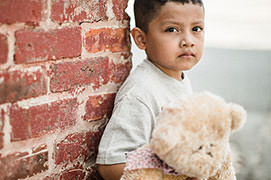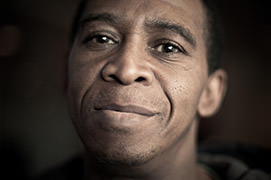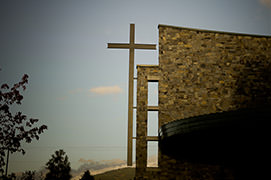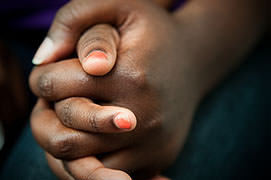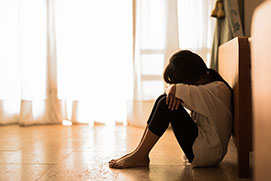-
What We Do
- Holiday Giving
- Rent, Mortgage and Utility Assistance
- Food Pantries
- Homeless Shelters
- Disaster Relief
- Rehabilitation
- Spiritual and Worship Services
- Job Training
- Solutions to Human Trafficking
- Veterans Services
- Services for the Aging
- Grassroots Services
- Help for Domestic Abuse
- Life Skills to Escape Poverty
- Summer Camps
- After-School Programs
- About Us
- Newsroom
- Ways to Give
- Love Beyond
- 2024 Annual Report
Never Miss a Chance to Do the Most Good
Please enter your name, email and zip code below to sign up!
Every year, natural disasters destroy local economies and devastate lives. They cost billions of dollars each year and cause our neighbors trauma and emotional damage.
Earthquakes, hurricanes, tornadoes, wildfires, droughts, floods, and other major disasters pose a great threat to our country. We’re here to help — in any given year, The Salvation Army provides support, hope, and healing to nearly 600,000 survivors and first responders.
National and International Disaster Support
Support recovery efforts for these large-scale disasters. Learn more about how we support disaster recovery efforts below.
Los Angeles Wildfires
The Salvation Army is responding to the recent fires in Los Angeles, CA, with disaster food services for emergency responders and families in need and mobilizing to serve those affected in the emergency shelters.
Learn More Donate NowHurricane Milton Relief Efforts
Learn more about how The Salvation Army is assisting communities and first responders affected by Hurricane Milton.
Learn More Donate NowHurricane Helene Relief Efforts
The Salvation Army is responding to Hurricane Helene. Learn more about how The Salvation Army is helping after this historic storm.
Learn More Donate NowHurricane Francine
The Salvation Army Alabama Louisiana & Mississippi Division is mobilizing to support communities as Hurricane Francine approaches. We stand ready to meet the needs of affected communities.
Learn More Donate NowUkraine Support
For the last three years, winter conditions have become much more challenging due to the war in Ukraine. In the build up to, and during winter each year, Russia has attacked civilian energy infrastructure. The Salvation Army offers continued relief efforts to Ukraine throughout these challenging times.
Learn More Donate NowAcross our nation, The Salvation Army is there to lend a hand.
No matter where disaster strikes, The Salvation Army is already there with a comprehensive emergency response plan.
As one of the most well-known disaster-relief organizations in the country, The Salvation Army is ready with immediate response and recovery plans unique to the community affected. Plans forged from decades of recovery efforts and learnings from across the world.
We serve in nearly every community in the United States long before a disaster happens. We’re among the first on the spot, providing wildfire, flood, tornado, or hurricane relief, and we stay long after a catastrophe has passed.
.
The Salvation Army Helps Meet the Disaster Survivors Through:
Emergency Preparedness
Our experience covers decades of leading recovery efforts – since the 1900 Galveston Hurricane, our trained staff and volunteers have served survivors and first responders of every major disaster.
We know recovery efforts start before a disaster strikes, and a good plan is key to long-term recovery success. Our disaster-preparedness training program, like this one in our Central Territory, gets individuals and communities ready for emergencies.
In addition, we also have a disaster preparedness handbook available.
Immediate Emergency Response
Disasters and emergencies strike without much warning, but you can count on The Salvation Army to be on the spot, providing relief to communities within hours, because we’re already there with a comprehensive emergency response plan.
We work with local organizations and federal authorities. We mobilize to provide people with food, water, and emergency shelter. We provide mobile showers, bottled water, and a clean blanket to anyone in need. We turn our properties into sites of refuge when needed. And we deliver emotional and spiritual care that first responders and survivors' desire.
When Hurricane Harvey brought $125 billion in devastation to the Texas Gulf Coast region, we executed one of the largest disaster-relief operations in our history, demonstrating our robust emergency response plan. The Salvation Army deployed 96 mobile feeding units; served more than 2.8 million meals, drinks, and snacks; and provided more than 400,000 hours (about 45 and a half years) of staff and volunteer service.
Emotional and Spiritual Care
Some effects of disasters are unseen, as many survivors and first responders suffer emotional stress and trauma. The Salvation Army delivers the vital emotional and spiritual care they need.
Whether it calls for a hug and a prayer, or a compassionate ear, The Salvation Army is ready to help.
Read the story of how one family reached out to The Salvation Army’s specially trained emotional and spiritual care providers to navigate life after Hurricane Irma.
Long-Term Disaster Recovery
The Salvation Army provides long-term recovery efforts for as long as we are able. In some cases, this means we continue to help for months, even years, after a disaster. We work with local, state, and federal governments to form a long-term disaster recovery plan.
The plan is far-reaching and meets basic needs. It addresses restoration and rebuilding projects. It includes the dispersal of emergency financial assistance programs and donated goods. All to help survivors rebuild their lives.
When our initial response to Hurricane Katrina ended, we allocated $225 million, donated by the American public for Hurricane Katrina response, to provide long-term disaster recovery, including case management, reconstruction, and support for volunteer rebuild teams. Financial assistance programs also helped with home repair assistance, job training for disaster survivors, and other initiatives to aid long-term recovery in communities.
- Partner with Habitat for Humanity provided funds to support the construction and rehabilitation of more than 400 homes and sponsored the 2008 Jimmy & Rosalynn Carter Work Project.
- Help more than 5,000 people who became unemployed as a result of the hurricanes receive job training and re-employment services, in cooperation with partner organizations.
- A new Emergency Disaster Services center in Jackson, MS, featuring an emergency operations center, 17,000 square feet of warehouse space, a state-of-the-art amateur radio station, and a vehicle yard for a fleet of specialized disaster equipment and vehicles.
- A 52,000-square-foot Ray and Joan Kroc Corps Community Center in Biloxi, MS, to replace Salvation Army facilities lost during Hurricane Katrina, built on the site of one of the volunteer villages that The Salvation Army operated for Katrina aid workers.
Serving All Without Discrimination
In providing its disaster relief programs and services, The Salvation Army is committed to accommodating all those in need without unlawful discrimination or harassment based on age, race, color, religion, sex, national origin, marital status, disability, citizenship, sexual orientation, gender identity, gender expression, or any other characteristic in accordance with our capacity to help.
Spread the Word
Turn your passion into action. Share these facts with your friends and
followers to educate and inspire change.
The Salvation Army fights natural disasters with acts of God.
Our comprehensive emergency response plan makes us ready to jump into action with relief services wherever a disaster strikes. With over a century of experience, our history of response efforts lets us tailor our services to fit a specific community in need. We scale to the storm, because when it comes to disasters, one size does not fit all.

The Salvation Army brings help, hope, and healing to disaster survivors.
Watch how we provide rescue and relief to communities affected by disasters by offering survivors emotional healing and spiritual comfort.
Press Resources
Experts for Interview
The Salvation Army has trained experts leading its emergency disaster response efforts in nearly every community in the United States. Many of these experts have decades of experience in emergency management and have led disaster response efforts for countless natural and human-made disasters, including:
- Hurricane Katrina
- The 9/11 terrorist attacks
- The Oklahoma City bombing
- The Joplin tornado
- The 2004 and 2017 Atlantic hurricane seasons in Texas, Florida, the Virgin Islands, Puerto Rico, and more
- COVID-19
- The 2021 December Midwest derecho and tornado outbreak
- The Marshall Fire in Colorado
- Hurricane Fiona
- Hurricane Ida
If you are a member of the media and would like to speak with one of our experts, please contact:
The Salvation Army
703-302-8640
mediarelations@salvationarmyusa.org
Other Ways We Meet Needs
-

Disaster Relief
-

Holiday Giving
-

LGBTQ Support
-

Commitment to Diversity
-

Homeless Shelters
-

Food Pantries
-

Grassroots Services
-

Life Skills to Escape Poverty
-

Rehabilitation
-

Spiritual Healing
-

Job Training
-

Responses to Human Trafficking
-

Veteran Services
-

Services for the Aging
-

Help for Domestic Abuse
-

After-School Programs



